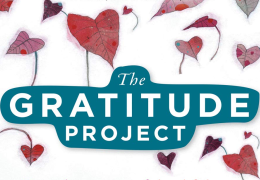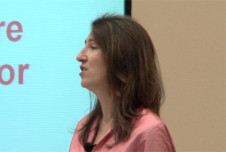1. Keep a Gratitude Journal. Establish a daily practice in which you remind yourself of the gifts, grace, benefits, and good things you enjoy. Setting aside time on a daily basis to recall moments of gratitude associated with ordinary events, your personal attributes, or valued people in your life gives you the potential to interweave a sustainable life theme of gratefulness.
2. Remember the Bad. To be grateful in your current state, it is helpful to remember the hard times that you once experienced. When you remember how difficult life used to be and how far you have come, you set up an explicit contrast in your mind, and this contrast is fertile ground for gratefulness.
3. Ask Yourself Three Questions. Utilize the meditation technique known as Naikan, which involves reflecting on three questions: “What have I received from __?”, “What have I given to __?”, and “What troubles and difficulty have I caused?”
4. Learn Prayers of Gratitude. In many spiritual traditions, prayers of gratitude are considered to be the most powerful form of prayer, because through these prayers people recognize the ultimate source of all they are and all they will ever be.
5. Come to Your Senses. Through our senses—the ability to touch, see, smell, taste, and hear—we gain an appreciation of what it means to be human and of what an incredible miracle it is to be alive. Seen through the lens of gratitude, the human body is not only a miraculous construction, but also a gift.
6. Use Visual Reminders. Because the two primary obstacles to gratefulness are forgetfulness and a lack of mindful awareness, visual reminders can serve as cues to trigger thoughts of gratitude. Often times, the best visual reminders are other people.
7. Make a Vow to Practice Gratitude. Research shows that making an oath to perform a behavior increases the likelihood that the action will be executed. Therefore, write your own gratitude vow, which could be as simple as “I vow to count my blessings each day,” and post it somewhere where you will be reminded of it every day.
8. Watch your Language. Grateful people have a particular linguistic style that uses the language of gifts, givers, blessings, blessed, fortune, fortunate, and abundance. In gratitude, you should not focus on how inherently good you are, but rather on the inherently good things that others have done on your behalf.
9. Go Through the Motions. If you go through grateful motions, the emotion of gratitude should be triggered. Grateful motions include smiling, saying thank you, and writing letters of gratitude.
10. Think Outside the Box. If you want to make the most out of opportunities to flex your gratitude muscles, you must creatively look for new situations and circumstances in which to feel grateful.
Image ©Greg Sargent









Comments
Thank you for these great ideas. The post was well written and I like the meditative / Buddhist tone. This reminds me to strive for gratitude and to be more authentic.
Emmy | 1:53 pm, November 17, 2010 | Link
Thank you for the nice post. It would be helpful for me to read that every day to start the day. It is often easy to get frustrated by focusing too much on everything that we haven’t gotten done. Whereas if you do look at what you have accomplished then it is easier to feel better about things. Thanks again, Sienna.
Siena Jonnes | 5:07 am, December 3, 2010 | Link
Dear Robert,
This is fine and nourishing fare - thanks for what you do and what you inspire (a touch of gratitude there, hopefully doing good for both of us!)
I’ve started to use your ideas, themes and language within professional development sessions for leaders in schools and social services in our quiet corner of very rural England. We run these as facilitated small group dialogues, and we’ve found your work to be immensely engaging and the ensuing discussions to be rich and productive. Of particular interest has been the fact that gratitude and its consequences seem almost universally underplayed - until it becomes overtly recognised and discussed - after which nothing can be the same again. This is indeed liberating and transformational stuff - keep on with it, and please let’s have more explicit links with effective and ethical leadership.
Best wishes
Paul Nicholas
Adviser for Leadership Development
Herefordshire Council
Paul Nicholas | 2:14 pm, December 10, 2010 | Link
Prof Emmons, I am so thrilled to find you are blogging, I have been reading your research (for a documentary I am making) and happy to find this place to come and read more. Thank you!
Toni Powell | 6:46 pm, February 5, 2011 | Link